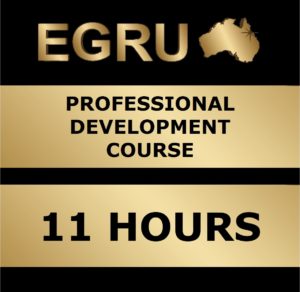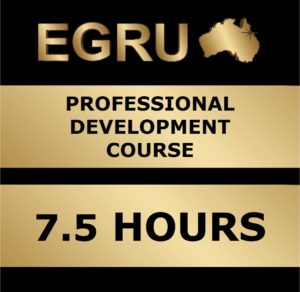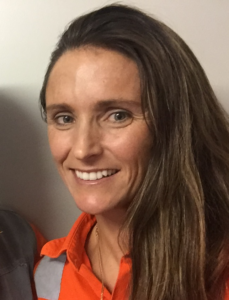Exploration Geophysics for Geologists
Overview
This course comprises 3 stand-alone modules that cover the main geophysical techniques used in mineral exploration.
We apologise but due to unexpected circumstances we have had to postpone Module 1 of this course. We will update with the new module dates when they have been confirmed. The dates for Modules 2 and 3 are unchanged.
Delivery Online
Structure 3 x stand alone modules
Each module is presented over 3 or 4 consecutive days
Dates & Session Times
Module 1
Dates to be Confirmed
Daily Sessions
8:00 – 12:30 AWST (Perth)
10:00 – 14:30 AEST (Townsville, Sydney)
Module 2
10 to 12 June 2025
Daily Sessions
7:30 – 10:45 AWST (Perth)
9:30 – 12:45 AEST (Townsville, Sydney)
Module 3
17 to 20 June 2025
Daily Sessions
8:00 – 12:30 AWST (Perth)
10:00 – 14:30 AEST (Townsville, Sydney)
Confirmation Dates
Module 1 – 19 May 2025
Module 2 – 26 May 2025
Module 3 – 2 June 2025
Professional Development
Participation in this course may contribute to the Continued Professional Development requirements of Professional organisations.
Modules 1 & 3

Module 2

Registration Fees
Fees per module
AUD inclusive of GST
Module 1
Introduction to Exploration Geophysics
EGRU Member $820.00
Non Member $1150.00
AIG Member $960.00
Student (full-time) $375.00
Module 2
Aeromagnetics in Mineral Exploration
EGRU Member $550.00
Non Member $770.00
AIG Member $650.00
Student (full-time) $250.00
Module 3
Electromagnetics & Induced Polarisation in Mineral Exploration
EGRU Member $820.00
Non Member $1150.00
AIG Member $960.00
Student (full-time) $375.00
Registration for this course is now open. Please register here.
If you have any questions please contact EGRU_training@jcu.edu.au.
Module 1
Introduction to Exploration Geophysics
James Daniell, Fender Geophysics
A 1.5 day course presented over 3 days
Dates TBC
- Introduction and comparison of geophysical techniques
- What to expect from geophysical surveys
- Companies / Consultants / Contractors
- Sources of existing data
- Survey planning and logistics
- Landowners and surveys
- Health and safety for geophysical surveys
- Practical exercises
Module 2
Aeromagnetics in Mineral Exploration
Kim Cook, South32
A 1 day course, including interpretation exercises, presented over 3 days
Tuesday 10 June to Thursday 12 June 2025
- Introduction to magnetics
- Aeromagnetic interpretation procedures
- Typical magnetic signatures: lithologies, alteration, deposit examples
- Magnetic modelling: 2D profile modelling, 3D magnetic inversions
- Incorporating other data sets (gravity, radiometrics, EM, resistivity, satellite imagery)
- Survey planning
- Interpretation exercises
Module 3
Electromagnetics & Induced Polarisation in Mineral Exploration
Kate Hine, Mitre Geophysics
A 1.5 day course presented over 4 days
Daily sessions include presentations, time for questions, discussion and review
Tuesday 17 June to Friday 20 June 2025
- Introduction to EM – what is it and how does it work?
- Examples of EM in exploration projects
- Understanding EM basics: Data acquisition, Processing, Display, Types of EM surveys
- Advanced concepts useful for ranking EM responses – Time constant, Tau, Coupling
- Maxwell EM modelling – a simple practical to help get a feel for what ‘plate’ means
- A brief overview of Induced Polarisation (IP)
- IP and exploration interactive case study
- Interactive case study to cement the above concepts
Course Leaders
James Daniell
Fender Geophysics
 James is a qualified geophysicist who has led land and marine-based research projects and has expertise in seismic, magnetics, resistivity, pXRF and marine-based acoustic methods. He has a strong background in geological field mapping and expertise in the analysis of sediment samples.
James is a qualified geophysicist who has led land and marine-based research projects and has expertise in seismic, magnetics, resistivity, pXRF and marine-based acoustic methods. He has a strong background in geological field mapping and expertise in the analysis of sediment samples.
James spent eight years as a lecturer at James Cook University (Townsville) and 11 years as a research geoscientist at Geoscience Australia (Canberra). He has over 20 years geoscientific and environmental research experience and continues his involvement in research.
James is a Senior Geophysicist with Fender Geophysics.

Kim is a geophysicist specialising in the interpretation of aeromagnetic data and the integration of geophysical and other remotely sensed data into a geological framework.
Kim has worked for more than 30 years in the global mineral exploration industry, with most experience in gold (orogenic and porphyry), base metals and iron ore. She has a background in airborne data acquisition and processing/imaging.
Kim is the Manager, Geoscience Research & Technology, for South32.
 Kate is an experienced geophysicist who has worked on a wide variety of commodities in a range of different geological settings, with some of the most interesting companies and exciting deposits in Australia and worldwide.
Kate is an experienced geophysicist who has worked on a wide variety of commodities in a range of different geological settings, with some of the most interesting companies and exciting deposits in Australia and worldwide.
Kate’s speciality is high quality EM processing and interpretation, but she also has unrivalled expertise in MMR methods, used to detect and define weakly conductive mineralisation. These downhole applications are usually part of drilling campaigns resulting from one or more of airborne EM, 3D_IP; magnetics and gravity surveys. In Kate’s portfolio of discoveries, several are more than 400m below surface with no surface indications.
Kate is the Principal Consultant for, and a Director of, Mitre Geophysics Pty Ltd which has been advising the mining industry since 1980.




